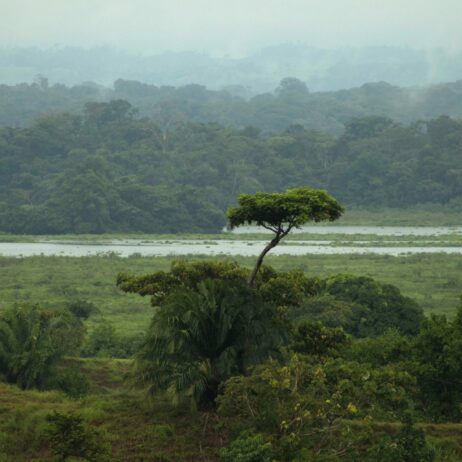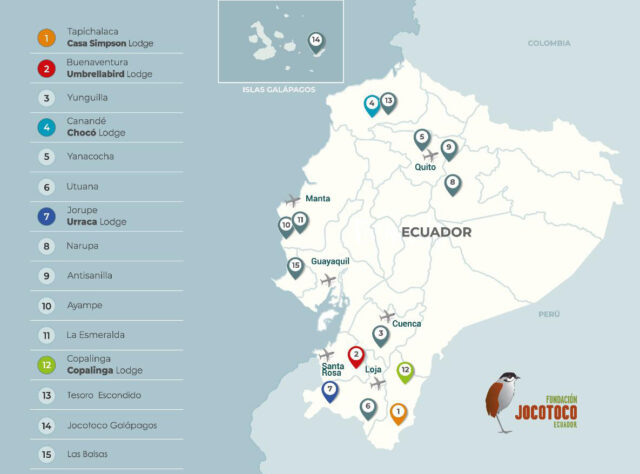
Just as in the UK where we have seen people seemingly trying to avoid COVID-19 by escaping to rural areas, the same has been witnessed in the US and in Australia. WLT partners are now sending reports to us that they are having to cope with this too.
KEEPING FUNDACION JOCOTOCO’s 15 reserves SAFE
Three components are making the COVID-19 crisis particularly difficult for Ecuador. The first two are the lack of tourism coupled with very low oil prices, which, together, make up one third of export earnings for the country. The third component exacerbating the crisis is that Ecuador does not have its own currency and uses the US Dollar, and in recent years the dollar has continuously increased in value compared to other currencies in Latin America, making the price of goods in Ecuador higher than that in neighbouring Colombia and Peru.
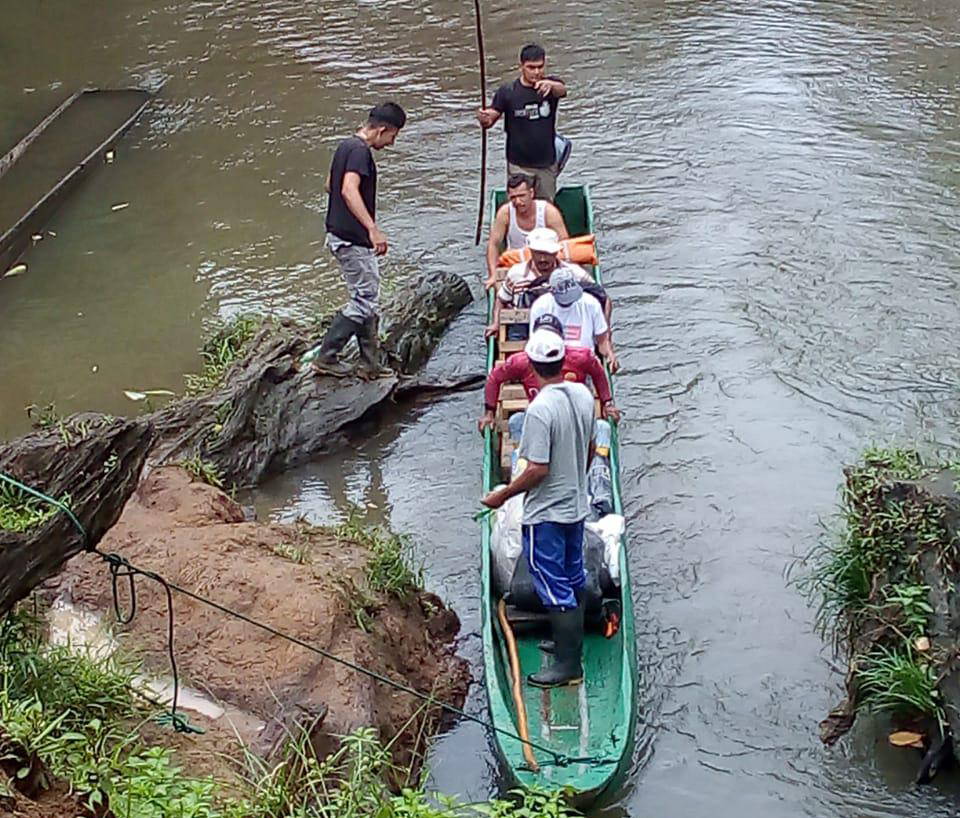
Increased patrolling in the remote parts of Canandé Reserve. Credit: Fundacion Jocotoco
Against this backdrop of economic hardship, the people of Ecuador now have the added stress of the COVID-19 pandemic and falling incomes. As a result we are seeing people fleeing the cities and turning to rural areas searching for safety and informal income, mainly logging and hunting. Food shortage right now is so acute that Fundación Jocotoco has been handing out rice to hungry families adjacent to their reserves. Fundación Jocotoco has also strengthened patrolling by hiring new rangers for a few weeks, in order to send a strong signal that the reserves, are protected and to support the local communities.
One longer-term positive outcome might be that land prices will fall, which could, in the future, present a very good opportunity to expand some of the reserves, saving more threatened land. Meanwhile, Fundacion Jocotoco’s conservation work continues, except for workshops and other outreach. But, land purchase is currently on hold as long as notaries are closed.
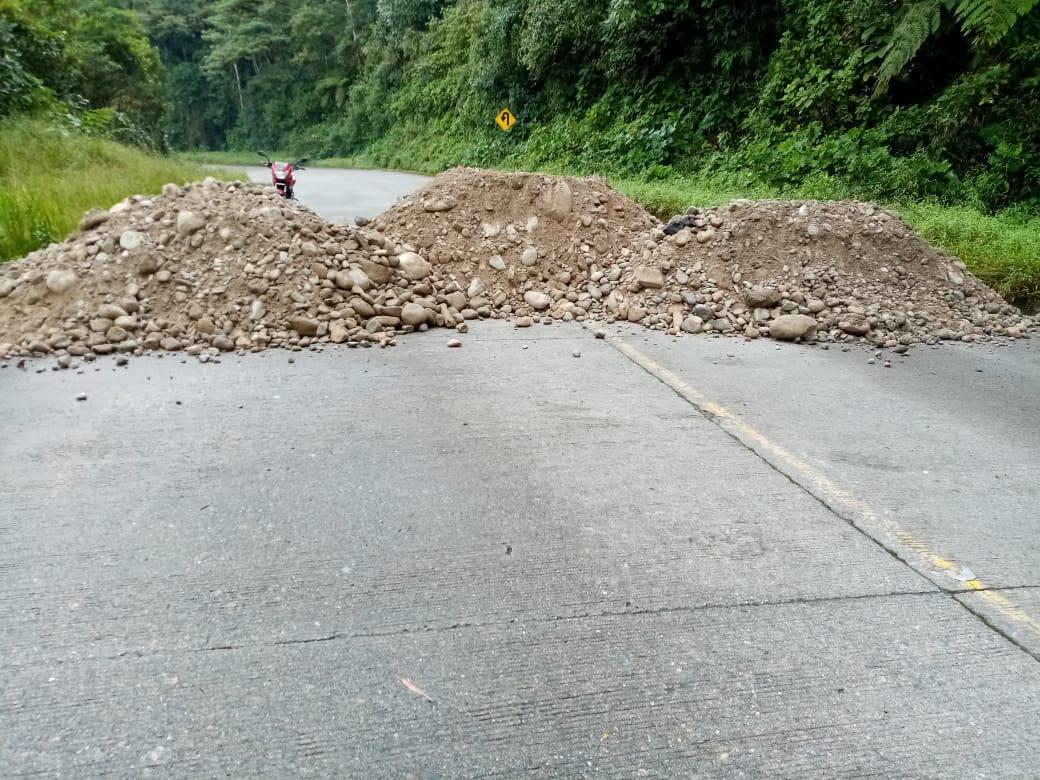
Road blocks at Narupa Reserve. Credit: Fundacion Jocotoco
Martin Schaefer, Executive Director of WLT’s partner, Fundacion Jocotoco, reports:
“Food security is rapidly deteriorating in rural Ecuador. We help our neighbours where we can. As our office staff adapt to working remotely, our park guards are continuing their work in the reserves. Jocotoco’s 15 reserves are among the safest places on Earth. We have seen in some regions (around Narupa and Canandé reserves in particular) an influx of people from the cities. People flee the cities fearing virus transmission and having lost their employment. Indeed, the well-being of rural communities, but also increasing pressure from illegal logging and hunting are very significant worries for us right now.
“The local population is terrified that strangers may bring them into contact with the virus. While their worries may seem overly cautious, they are deeply rooted in the Latin American culture, where diseases brought originally by Europeans (and by generalisation now, all foreigners) extirpated hundreds of thousands of indigenous people.
“To reduce the influx, many villages are locking themselves in, erecting road barricades (this happened at both Narupa and Canandé, but also in many other places in Ecuador). There is now a real threat of illegal logging and hunting as a result of people out of work. First, the rural population increased while jobs decreased. Second, disruption of traffic caused by road barricades and the curfew [which is much more restrictive than what we experience in Europe, everyone can only leave the house for up to 5 hours a week, on a single day] means fewer supplies coming to rural areas. As a consequence, subsistence hunting and illegal logging are increasing.
“To counter hunting and logging, Fundacion Jocotoco has needed to hire temporarily four more reserve guards around Canandé and one around Narupa, where we see the highest risks. This has been a good and strong signal, which was welcomed by concerned neighbouring communities.
Every new ranger we can appoint will help us counteract the current threats and provide employment, when so many people lost their jobs.”
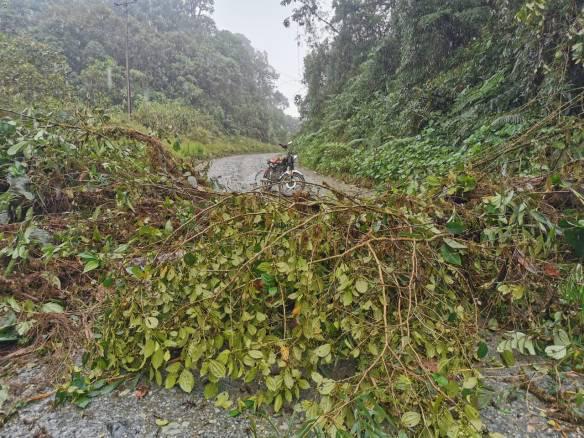
Road blocks put in place by local communities who want to deter people entering Fundacion EcoMinga’s Dracula Reserve. Credit: Daniel Valencia
From Fundacion EcoMinga, Lou Jost reports a similar situation:
“Many people in Ecuador are rightfully scared and desperate as they face the spreading coronavirus. Small isolated towns have begun to close their borders to keep the virus out. The community nearest our Dracula Reserve, Chical, is one of those communities. It is on the Colombian border and there are no roads connecting it to Colombia. The main road to the community goes through our reserve. The local people, working with the army and the police, have decided to close off this road and block it completely.
“One of our Dracula Reserve guards, Daniel Valencia, made his last patrol on this road on March 18. He has sent us pictures of what the people have done to the road to keep everyone out. A very disheartening reaction, though partly understandable. Trees were cut down to block the road, and machinery dragged big rocks and debris onto the road to make it even harder to cross. Our thoughts are with the community of Chical, and hope that everyone stays safe and healthy.”
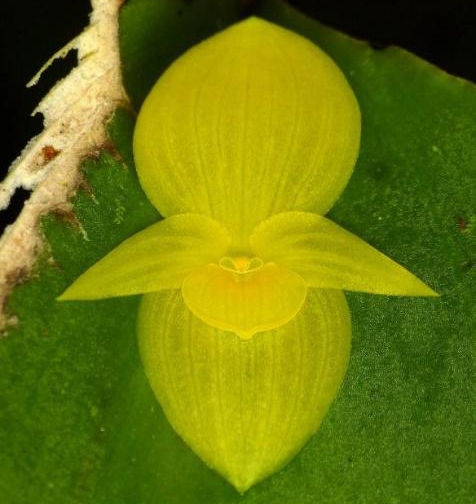
Pleurothallis chicalensis, a species new to science, discovered in Fundacion EcoMinga’s Dracula Reserve. It has been officially named for the people of Chical, the nearest community to the reserve. Image: Andreas Kay
About the Dracula Reserve, Lou reports:
“Our Dracula Reserve in northwest Ecuador has been the source of many orchid discoveries over recent years, so many in fact that I am rather behind in writing up the descriptions. The orchid below is the newest discovery, just published (early in April) in the journal Lankesteriana. It is a bright yellow Pleurothallis which was first found by Javier Robayo (EcoMinga’s Executive Director), Hector Yela (an EcoMinga reserve ranger) and Andreas Kay (photographer and author of the web page Ecuador Megadiverso). The authors named the new orchid after the small town of Chical which, as I said earlier, is the nearest community to the Dracula Reserve. They are proud to be associated and recognise the importance of the biodiversity of the magnificent forests which still survive there.”
